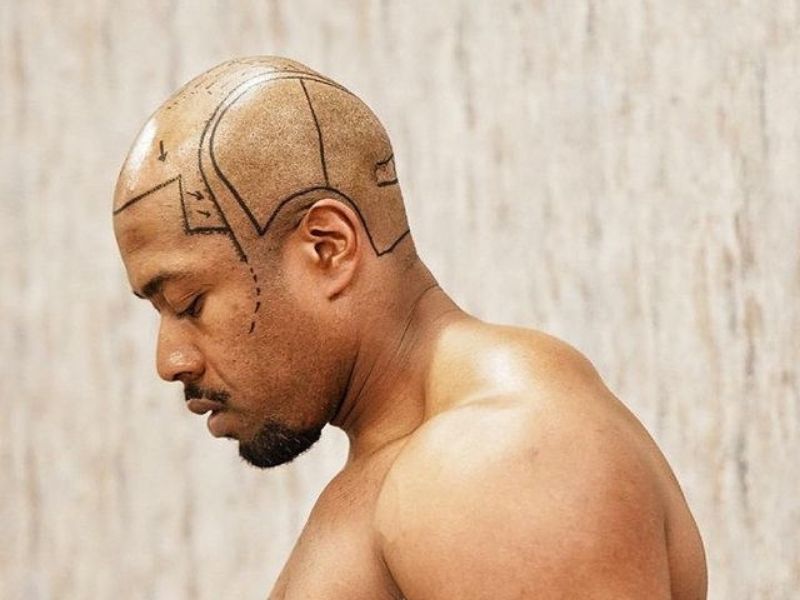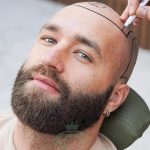Care and Recovery After Hair Transplant Surgery
Hair transplantation is a relatively simple procedure and usually takes place within a day. Post-hair transplant care and recovery is an important part of the procedure and should therefore be treated as such. Post-hair transplant care is very important for the healing process. In this article, we will inform you about the care and recovery process after hair transplantation.
Care Tips for the First Days After Hair Transplant Surgery
The first seven days after the transplant will lay the foundation for the entire healing process. You will likely experience a variety of physical sensations and emotions during this first week, so it is important to understand what to expect along the way.
To ensure the long-term success of your hair transplant, you should maintain proper post-operative care after the first week. This will include keeping the hair clean and healthy, avoiding any activities that could damage the transplanted grafts or cause stress, and scheduling follow-up appointments to monitor your progress. Your clinic will provide you with specific aftercare instructions tailored to the procedure and your individual needs. Following these instructions is critical to a successful recovery. This may include guidelines on how to wash your hair, when to take medication, and how to manage any discomfort. Prioritizing hair health and care during this period will contribute significantly to the overall success of your hair transplant.
You should avoid touching, scratching or plucking the transplanted area in the first weeks. This can damage the healing process and potentially dislodge new transplants. If you experience itching or discomfort, consult your doctor for appropriate solutions.
It is important to use the care products provided by your clinic during the first weeks. Using them will speed up your healing process. It is also important to avoid contact with water at this point. Following the advice given by your clinic about showering will ease the process.
Nutrition and Lifestyle Considerations During Recovery
The recovery process after hair transplantation is not only limited to following medical instructions. You should review your eating habits during the recovery period after hair transplant surgery. It is important to eat healthy and consume vitamin-containing foods at this point. Foods with high nutritional value should be prioritized. Vitamin and mineral-based foods will contribute to your recovery. It is very important to drink plenty of water to keep the body and scalp moisturized. Water ensures proper cellular functioning and supports the healing process. At the same time, stress can negatively affect the healing process. It is also important to avoid stress.
You can make the process easier by following the nutritional instructions given by your doctor for you after hair transplant surgery.
Possible Complications After Hair Transplant Surgery and How to Deal with Them?
Hair transplantation is a well-known solution to address hair loss, but like any surgical procedure, it carries the risk of potential complications. Understanding these risks and knowing how to manage them can significantly improve your recovery and guarantee the best results.
Infection is one of the complications that can occur. This can be controlled by following the care instructions and using antibiotics under the supervision of a doctor. You can also avoid touching or scratching the area to minimize the risk of bacterial transmission.
Swelling is a common condition after hair transplant surgery. You can easily control it by using cold compresses or keeping your head elevated.
Mild bleeding may occur in the recipient or donor areas. You can apply light pressure with a cloth to reduce bleeding. To avoid such a situation, you can avoid heavy exercises for a while after hair transplant surgery.
Proper Hair Washing and Care After Hair Transplant Surgery
After having a hair transplant, following proper hair washing and care practices is important to ensure optimal healing and the success of your procedure. Proper post-operative care helps minimize the risk of complications and promotes healthy hair growth. After a hair transplant, it is very important to follow certain guidelines for washing and caring for your hair to ensure proper healing and optimal results.
Initially, you should avoid washing your hair for the first 48 to 72 hours to allow the newly transplanted grafts to settle in safely. When you start washing, opt for a gentle, sulfate-free shampoo to minimize irritation. Apply the shampoo gently to your scalp without scrubbing or rubbing it hard and rinse with warm or cool water. Instead of rubbing, pat your scalp dry with a soft towel.
It is important to avoid harsh chemicals and hot water, as these can damage the healing grafts. In addition, avoid any physical stress to the scalp, such as scratching or rubbing. If you must wear a hat, choose a hat made of a loose and soft material to avoid irritation.
Keep your scalp clean and dry and avoid exposure to wet environments such as swimming pools or hot tubs until your surgeon confirms it is safe. Be alert for signs of infection, excessive redness or unusual swelling and consult your surgeon if any worrying symptoms occur.
Following these care instructions will support your healing process and contribute to the success of your hair transplant.
Following these care instructions will support your healing process and contribute to the success of your hair transplant. Before and after photos of the transplant can vividly demonstrate the significant improvements achieved, showcasing the transformative impact of proper care and attention throughout the recovery period.



